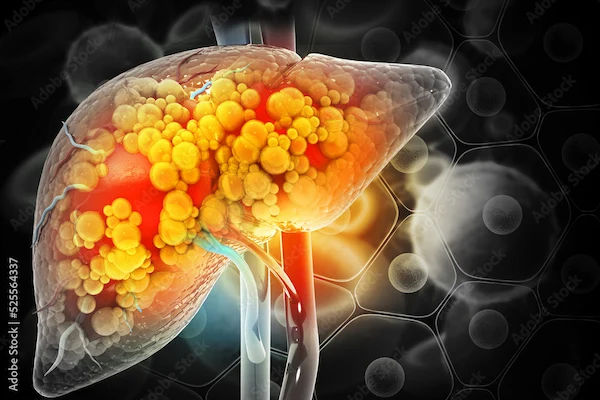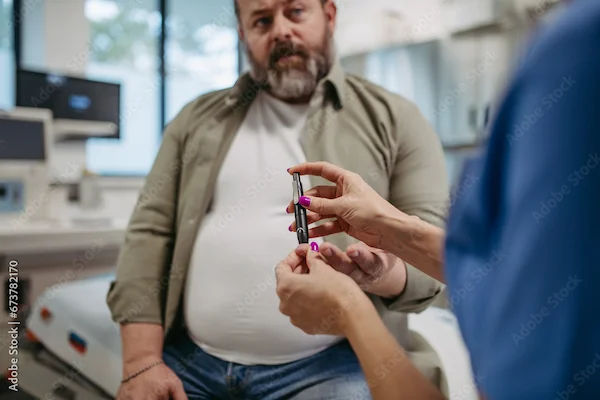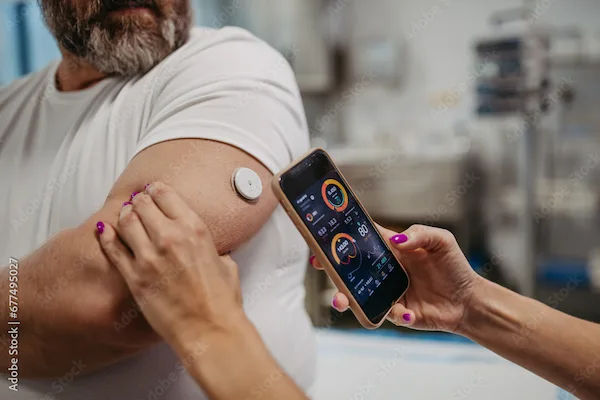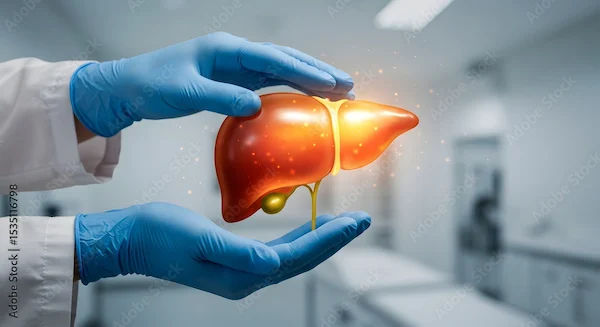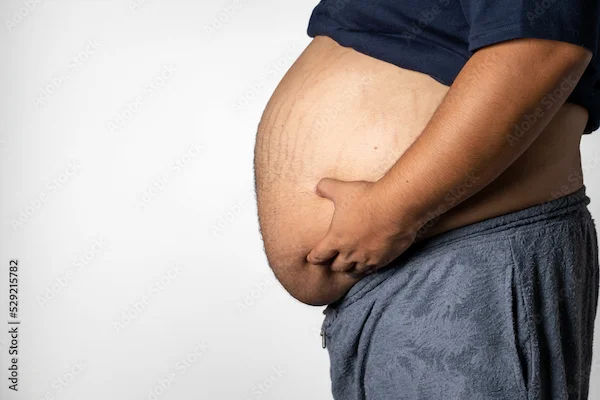Understanding Grade 2 Fatty Liver Disease
Gain a comprehensive understanding of Grade 2 Fatty Liver Disease, including its causes, common symptoms, diagnosis, and effective management strategies. Learn how to reverse progression and improve liver health.

Written by Dr. Vasanthasree Nair
Reviewed by Dr. Dhankecha Mayank Dineshbhai MBBS
Last updated on 25th Jul, 2025
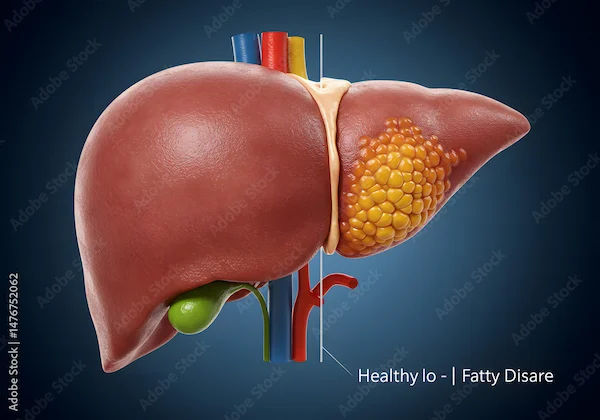
Fatty liver disease is a common condition where excess fat builds up in the liver. When this fat accumulation progresses, it is classified into different grades. Grade 2 fatty liver disease, also known as moderate fatty liver, is a stage where the fat deposits in the liver are more significant than in Grade 1 but have not yet caused severe damage.
If you or a loved one has been diagnosed with Grade 2 fatty liver, it’s natural to feel concerned. The good news is that this condition is reversible with the right lifestyle changes and medical guidance. In this article, we’ll explain what Grade 2 fatty liver means, its causes, symptoms, and how you can manage it effectively.
What is Grade 2 Fatty Liver Disease?
The liver plays a crucial role in digestion, detoxification, and metabolism. When fat makes up 10–30% of the liver’s weight, it is classified as Grade 2 fatty liver. At this stage, the liver is inflamed, and if left untreated, it can progress to Grade 3 (severe fatty liver) or even cirrhosis (permanent scarring).
There are two main types of fatty liver disease:
1. Non-Alcoholic Fatty Liver Disease (NAFLD) – Caused by poor diet, obesity, or diabetes.
2. Alcoholic Fatty Liver Disease (AFLD) – Caused by excessive alcohol consumption.
Grade 2 fatty liver falls under NAFLD in most cases, meaning it is not caused by alcohol but rather by metabolic factors.
Get Your Symptoms Assessed
Symptoms of Grade 2 Fatty Liver
Many people with Grade 2 fatty liver do not experience noticeable symptoms, which is why it often goes undetected until a routine checkup. However, some may experience:
Fatigue or weakness
Mild pain or discomfort in the upper right abdomen
Bloating or indigestion
Slight yellowing of the skin or eyes (in rare cases)
Since symptoms are often mild, getting a liver function test or ultrasound is important if you are at risk.
Consult a Top Hepatologist
What Causes Grade 2 Fatty Liver?
Several factors contribute to the development of Grade 2 fatty liver:
1. Poor Diet
Eating too much processed food, sugary drinks, and fried foods increases fat storage in the liver.
A high carbohydrate, low protein diet can worsen liver health.
2. Obesity & Insulin Resistance
Excess body fat, especially around the belly, increases fat buildup in the liver.
Diabetes or prediabetes (high blood sugar) makes the liver store more fat.
3. Sedentary Lifestyle
Lack of exercise slows metabolism, making fat accumulation easier.
4. Genetic Factors
Some people are genetically more prone to fatty liver disease.
5. Rapid Weight Loss
Losing weight too quickly can stress the liver and worsen fat buildup.
How Does Grade 2 Fatty Liver Affect Your Health?
If left untreated, Grade 2 fatty liver can lead to:
Liver inflammation (steatohepatitis)
Fibrosis (early scarring)
Increased risk of heart disease and diabetes
The good news is that lifestyle changes can reverse this condition before it causes permanent damage.
How to Manage & Reverse Grade 2 Fatty Liver?
Ways to manage and reverse grade 2 fatty liver:
1. Follow a Liver-Friendly Diet
Reduce sugar & refined carbs (white bread, pastries, sodas).
Increase fiber (whole grains, vegetables, fruits).
Eat healthy fats (avocados, nuts, olive oil, fatty fish).
Limit processed & fried foods.
Stay hydrated (drink plenty of water, herbal teas).
2. Exercise Regularly
Aim for 30–45 minutes of moderate exercise (walking, swimming, cycling) 5 days a week.
Strength training helps reduce liver fat.
3. Lose Weight Gradually
Losing 5–10% of body weight can significantly improve liver health.
Avoid crash diets, as they can worsen liver damage.
4. Avoid Alcohol & Smoking
Even small amounts of alcohol can worsen fatty liver.
Smoking increases oxidative stress on the liver.
5. Manage Underlying Conditions
Control diabetes, cholesterol, and high blood pressure with medication if needed.
6. Consider LiverSupportive Supplements
Vitamin E (under doctor’s guidance).
Omega-3 fatty acids (fish oil).
Milk thistle (may help liver function).
When to See a Doctor?
If you experience:
Persistent fatigue or abdominal pain
Unexplained weight loss or appetite changes
Yellowing of skin/eyes
It’s best to consult a hepatologist or gastroenterologist for further evaluation.
Apollo 24|7 offers expert consultations and liver function tests to help monitor and manage fatty liver disease. You can easily book an online consultation or schedule a test from the comfort of your home.
Final Thoughts
Grade 2 fatty liver is a warning sign, but it’s not too late to take action. By making simple dietary changes, exercising, and maintaining a healthy weight, you can reverse the condition and protect your liver from further damage.
If you suspect you have fatty liver or have been diagnosed, don’t ignore it. Early intervention can prevent serious complications.
Take the first step today—schedule a consultation with a liver specialist on Apollo 24|7 and get personalized advice for a healthier liver!
Consult a Top Hepatologist
Consult a Top Hepatologist

Dr. Srinivasa Reddy
Hepatologist
12 Years • MBBS, MD (General Medicine), DM (Hepatology),ASGE
Hyderabad
Myra Liver & Gastro Care, Hyderabad

Dr. E Prabhakar Sastry
General Physician/ Internal Medicine Specialist
40 Years • MD(Internal Medicine)
Manikonda Jagir
Apollo Clinic, Manikonda, Manikonda Jagir
(125+ Patients)

Dr. Sushith C
General Physician
2 Years • MBBS
Bengaluru
PRESTIGE SHANTHINIKETAN - SOCIETY CLINIC, Bengaluru

Dr. Kumaragurubaran. S
Hepatologist
0 Years • MBBS.,MD.,FPIC.,DM.,
Tiruchirappalli
Apollo Speciality Hospitals Old Palpannai, Tiruchirappalli
(25+ Patients)

Dr U V U Vamsidhar Reddy
Hepatologist
10 Years • MBBS, MD (JIPMER), DM (Hepatology, PGIMER)
Chennai
Apollo Hospitals Greams Road, Chennai
(100+ Patients)

